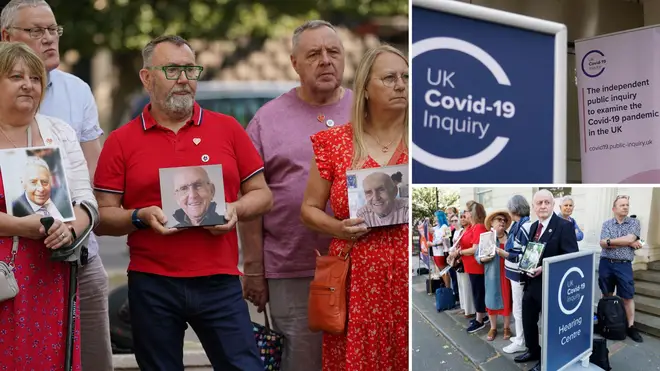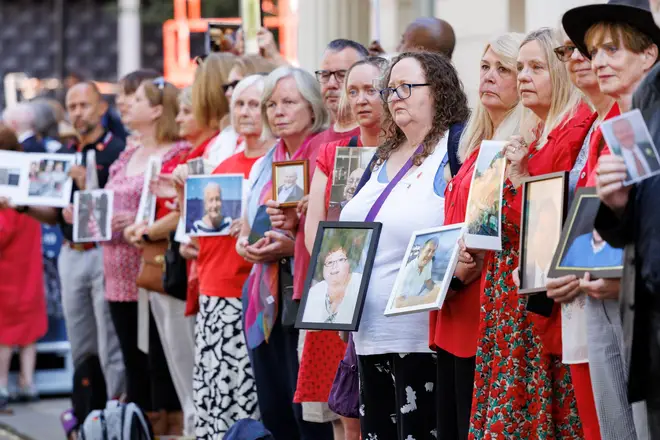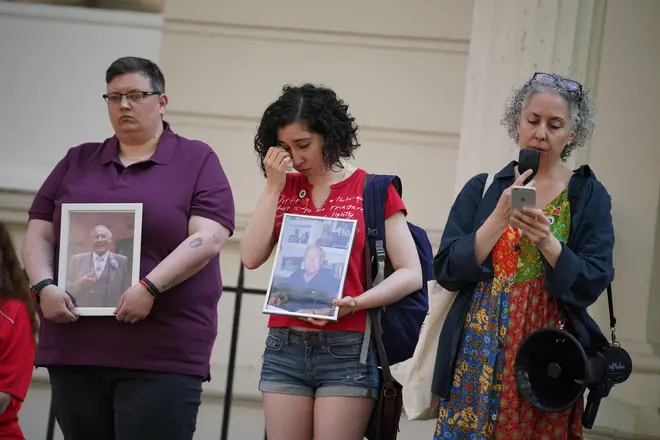
Vanessa Feltz 3pm - 6pm
13 June 2023, 13:45 | Updated: 13 June 2023, 13:52

The independent Covid inquiry has heard that Brexit may have interfered with and ‘crowded out’ the UK’s capacity to prepare for a pandemic.
The Covid inquiry, which started today, has heard that the impact of planning for a no-deal Brexit may have affected the UK’s ability to plan in the event of a pandemic.
Hugo Keith KC, the lead counsel at the inquiry, said: "The pandemic struck the United Kingdom just as it was leaving the European Union.
"That departure required an enormous amount of planning and preparation, particularly to address what were likely to be the severe consequences of a no-deal exit on food and medicine supplies, travel and transport, business borders and so on.
"It is clear that such planning, from 2018 onwards, crowded out and prevented some or perhaps a majority of the improvements that central government itself understood were required to be made to resilience planning and preparedness.
"Did the attention therefore paid to the risks of a no-deal exit - Operation Yellowhammer as it was known - drain the resources and capacity that should have been continuing the fight against the next pandemic, that should have been utilised in preparing the United Kingdom for civil emergency?
"Or did all that generic and operational planning in fact lead to people being better trained and well-marshalled and, in fact, better prepared to deal with Covid and also to the existence of improved trade, medicine and supply links?
"My lady, on the evidence so far - but it will be a matter for you - we very much fear that it was the former."
Listen and subscribe to Unprecedented: Inside Downing Street on Global Player

The inquiry was launched to look into the government’s handling of Covid and will mostly attempt to assess “the UK’s response to and impact of” the pandemic and “what lessons can be learned” from it.
Hearings start today and are not expected to be concluded until summer 2026, meanwhile final analysis may not arrive until as late as 2027.
The inquiry will be broken down into modules, the first four opened are: resilience and preparedness, core UK decision and political governance, impact of the pandemic on healthcare and vaccines and therapeutics.
Mr Keith also told the inquiry: "Extraordinary though it may seem, given that it's a word that's forever seared in the nation's consciousness, there was very little debate pre-pandemic of whether a lockdown might prove to be necessary in the event of a runaway virus, let alone how a lockdown could be avoided.
"Very little thought was given to how, if it proved to be necessary, how something as complex, difficult and damaging as a national lockdown could be put in place at all.”
He asked whether swine-flu “lead to concerns about overreacting” in the case of a global virus and added that while countries cannot necessarily be perfectly prepared for a pandemic, they can “certainly be underprepared”.
Read more: Boris Johnson misled Parliament by claiming Covid rules were followed, privileges committee to say

So far, the inquiry has heard testimonies from families who lost loved ones during the pandemic to the virus.
Those personally affected by loss during the pandemic have gathered outside the inquiry being held at Dorland House in London with photos of loved ones in frames.
The inquiry heard how people didn’t hug at funerals during the pandemic and how loved ones could not be buried in outfits, as they had to remain in sealed body bags.
Baroness Heather Hallett said: "I have promised many times that those who suffered hardship and loss are and will always be at the heart of the inquiry.
"And I have done my very best within the constraints upon me of time, resources and my terms of reference to fulfil that promise.
"I know that there are those who feel that the inquiry has not sufficiently recognised their loss or listened to them in the way that they feel appropriate but I hope that they will better understand, as the inquiry progresses, the very difficult balance I have had to strike.
"I hope they will understand when they see the results of the work we are doing that I am listening to them.
"Their loss will be recognised."